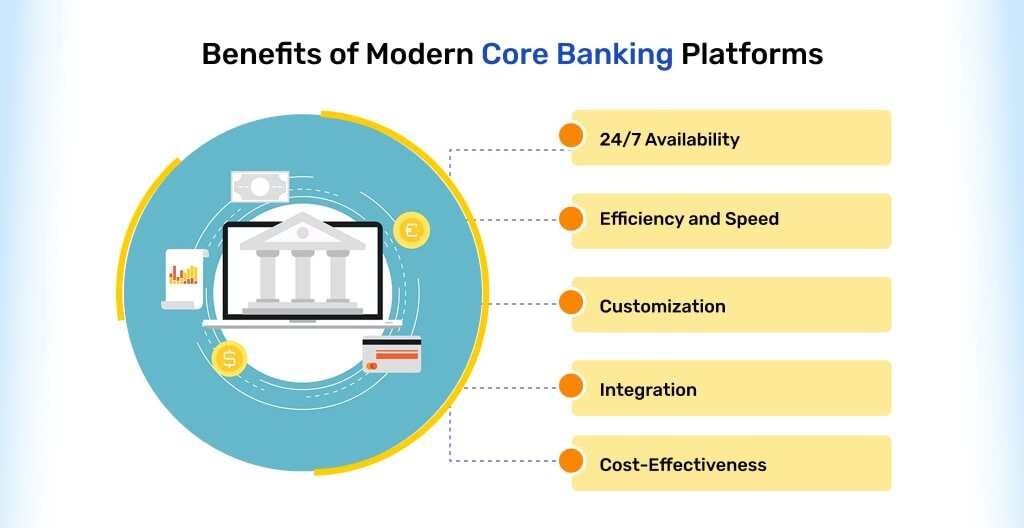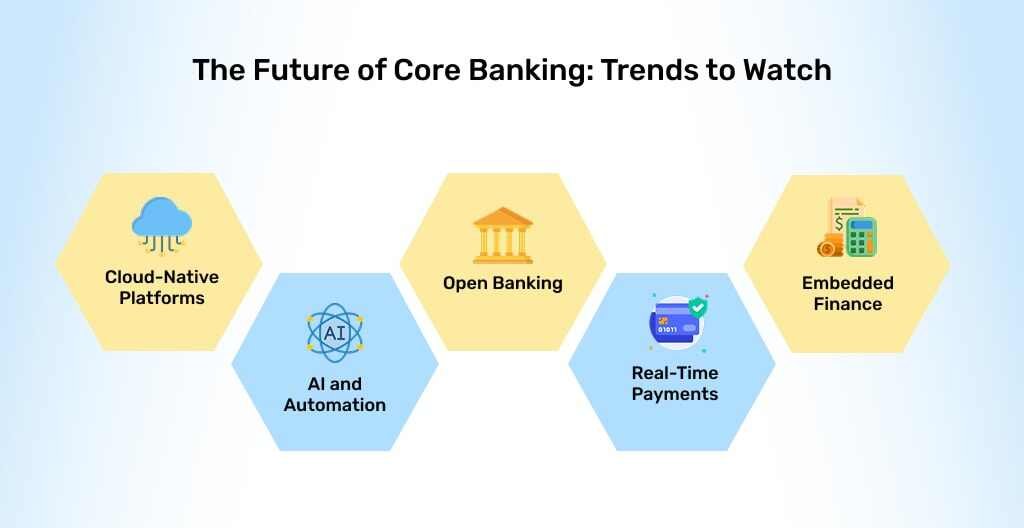Core banking systems are the pillars of modern banks, facilitating effective real-time banking technology across branches and on-line channels. It is necessary for technology illiterate executives to have some understanding of such systems so that they can make the right decisions that affect customer experience, operational efficiency, and sustainable growth. The book demystifies jargon to bring home a simple understanding of what core banking is, why it is important, and how to select the right platform to remain competitive in the rapidly evolving world of finance.
Table of Content
What Is a Core Banking System?
A core banking system refers to the main banking software platform on which banks and financial organizations rely to manage day-to-day functions like loan management, account opening, deposit and withdrawal, and customer relationship management. It is similar to the “engine” powering all the core banking technology transactions so that seamless services can be delivered through branches and electronic channels.
Why Core Banking Matters for Modern Enterprises?
Core banking is no longer a back-office utility but a front-office enabler. For companies today, a robust core banking platform offers real-time data processing, enhanced customer experience, regulation compliance, and the capacity to capitalize on new technologies such as AI and blockchain. It offers scalability and flexibility, the two must-haves in today’s fast-moving financial world.
Key Components of a Core Banking System
- Customer Information Management: Consolidated customer profiles for customized service. Provides a 360-degree view of customer activity to support relationship management and marketing campaigns.
- Account Management: Internet-based updating of checking, savings, and loan accounts. Supports easy opening, upkeep, and closure of accounts and real-time balance and transaction transparency.
- Transaction Processing: Fast, secure, and consistent transaction processing. Handles vast numbers of transactions with little latency and preserves data integrity and security.
- Product Management: Skill in launching and managing new financial products.
Benefits of Modern Core Banking Platforms

- 24/7 Availability: Customers can access services anytime, anywhere. This continuous accessibility enhances customer satisfaction and supports digital-first banking technology experiences.
- Efficiency and Speed: Automation minimizes operational faults and manual labor. Reduced processing times allow employees to concentrate on higher-value work and enhance service delivery.
- Customization: AI-driven insights enable banks to customize goods and services. By predicting demands and providing pertinent solutions, it facilitates proactive client involvement.
- Integration: Third-party apps and services can be easily integrated with APIs. establishes connections with fintechs and other digital banking transaction tools to promote ecosystem growth and innovation.
- Cost-Effectiveness: Cloud-based systems reduce infrastructure and maintenance costs. Minimizes capital expenditure while enabling scalable growth and faster deployment of new features.
Challenges Faced by Traditional Core Banking System
- Legacy Infrastructure: Maintaining and scaling outdated technology stacks can be challenging. This leads to more challenging integration with contemporary digital banking transaction solutions and slower innovation cycles.
- High Operational Costs: Manual monitoring is more necessary for traditional systems. Human error is more likely and labor expenses are higher when human intervention increases.
- Limited Flexibility: Difficult to adapt to evolving rules or customer needs. Banks can lose their market competitiveness if they respond slowly to changes in the market.
- Security Threat: Older systems are more vulnerable to security breaches and attacks. Risk of data loss and legal consequences is enhanced by aging security practices.
- Bad Customer Experience: The provision of services is hampered by slower procedures and a dearth of digital banking transaction interfaces. Due to delays and restricted access to self-service choices, customers become frustrated.
Choosing the Right Core Banking Partner: What to Look For
Scalability
Choose a core banking system that will scale up graciously with your business, handling increased volumes of transactions and customer queries without compromising on performance.
Security Standards
Ensure the platform complies with existing cybersecurity norms and compliance requirements to protect sensitive information and instill trust.
Tech Stack
Opt for modern technology that supports cloud deployment, AI capabilities, and open banking APIs to future-proof your operations and innovation potential.
Support & Training
Comprehensive staff training and reliable vendor support are crucial for hassle-free implementation, maintenance, and fullest exploitation of system benefits.
The Future of Core Banking: Trends to Watch

Cloud-Native Platforms
Banks are increasingly implementing cloud-native platforms for increased scalability, agility, and cost benefits, which enable quicker innovation and seamless upgrades.
AI and Automation
Analytics with AI and robotic process automation automate operations, enhance decision-making, and optimize customer experiences with minimal human touches.
Open Banking
Secure APIs enable sharing of data and collaboration, empowering customers with enhanced options and driving the development of innovative financial services.
Real-Time Payments
Instant payment capabilities are going mainstream, enabling faster payments that meet rising business and consumer demands for speed.
Embedded Finance
Banking capabilities are being embedded in-line within non-financial apps and platforms, bringing banking services closer and in context.
How Hutech Solutions Will Help You
Seamless Digital Transformation
Hutech Solutions excels at transforming legacy banking systems into nimble, cloud-based systems that improve scalability, speed, and security. Our specialists provide a seamless digital transformation experience as per your business requirements.
Personalized Core Banking Technology Solutions
We analyze your existing infrastructure, map pain areas, and deploy core banking architecture solutions that match your growth plan—be it improved performance, increased integration, or enhanced analytics.
Strategic Technology Partnerships
Hutech partners with leading financial technology providers, giving you the benefit of best-in-class banking software, speedy implementations, and forward-looking innovations like AI, blockchain, and machine learning.
From implementation through to post-deployment support, we undertake continuous monitoring, maintenance, and updating to keep your core banking system secure, compliant, and current.
Conclusion
Core banking systems are daunting, but understanding their place allows non-technical executives to make strategic decisions. With a successful platform, banks are able to power innovation, remain compliant, and deliver superior customer experience while maintaining the efficiency of operations.
Investment in modern core banking architecture solutions enables banks to stay ahead of the curve in an ever-evolving market by enabling agility and scalability. It also provides interdepartmental collaboration through streamlined data and process simplification. Ultimately, the correctly chosen core banking system is a strategic asset that supports long-term development and solidity.
Ready to Advance your Digital Transformation?Get in touch with us.
Discover why Hutech is the right partner for your business.
MAIL US AT
sales@hutechsolutions.com
CONTACT NUMBER
+91 90351 80487
CHAT VIA WHATSAPP
+91 90351 80487
Humantech Solutions India Pvt. Ltd 163, 1st Floor, 9th Main Rd, Sector 6, HSR Layout, Bengaluru, Karnataka 560102



